Gov. Kevin Stitt, tribal leaders not meeting as McGirt rhetoric hits boiling point
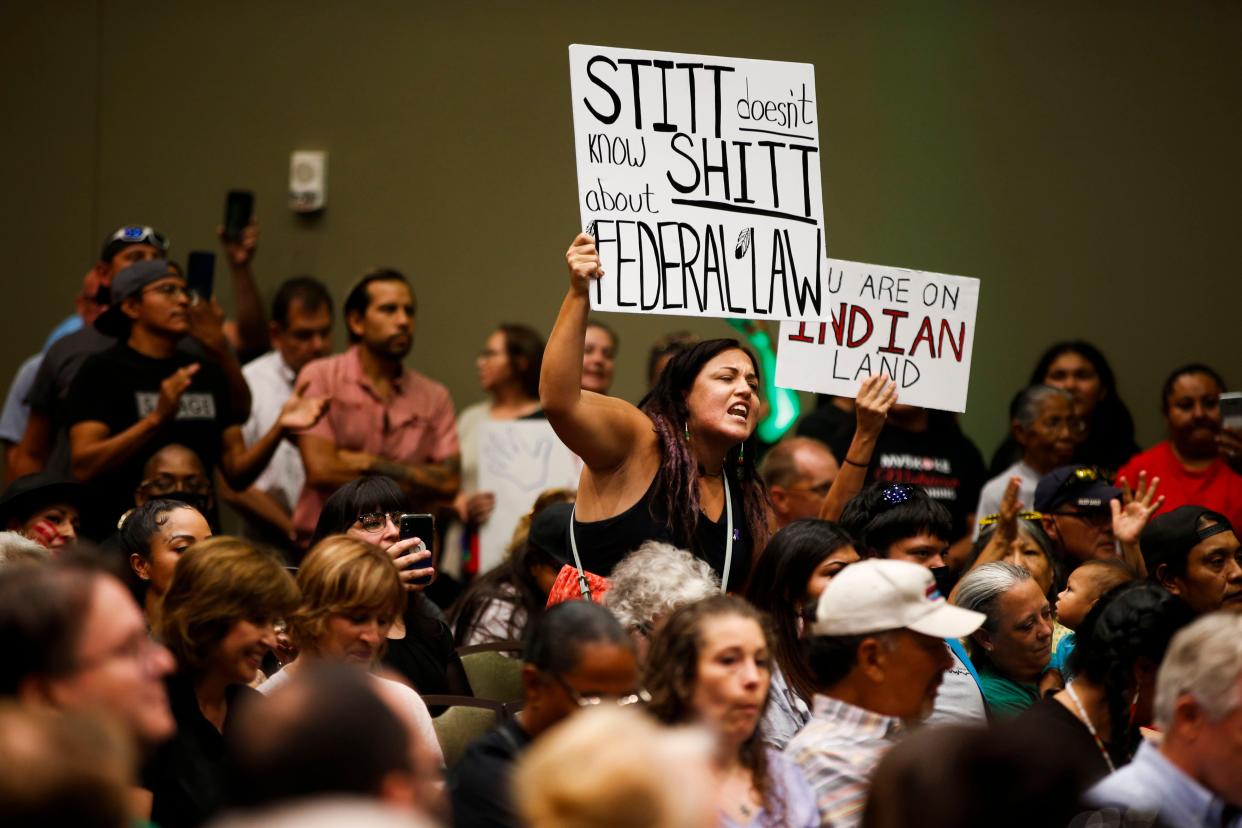
- Oops!Something went wrong.Please try again later.
In the weeks and months immediately after the Supreme Court’s landmark McGirt decision, Gov. Kevin Stitt and top members of his administration had meetings and phone calls with most leaders of Oklahoma’s Five Tribes to discuss next steps.
But since Feb. 1, when Stitt had Muscogee Nation Principal Chief David Hill and other Muscogee leaders over for dinner at the Governor’s Mansion, contact between the governor and tribal leaders has dropped off.
In the months since, Stitt has ratcheted up his rhetoric about McGirt as he has made clear he wants to see the decision overturned.
He has said the decision created “chaos” in Oklahoma and said “murderers and criminals” are being set free. Tribal leaders have pushed back, saying the governor’s comments are sensationalistic, divisive and misleading.
The rift widened recently when Stitt opted not to renew state-tribal hunting and fishing compacts with the Cherokee and Choctaw nations.
Information requested by The Oklahoman and provided by the Cherokee, Chickasaw, Choctaw and Muscogee nations shows Stitt and tribal leaders haven’t met in person since February. Stitt also has not met with leaders of the Quapaw Nation, the latest tribe to be covered by the Supreme Court ruling.
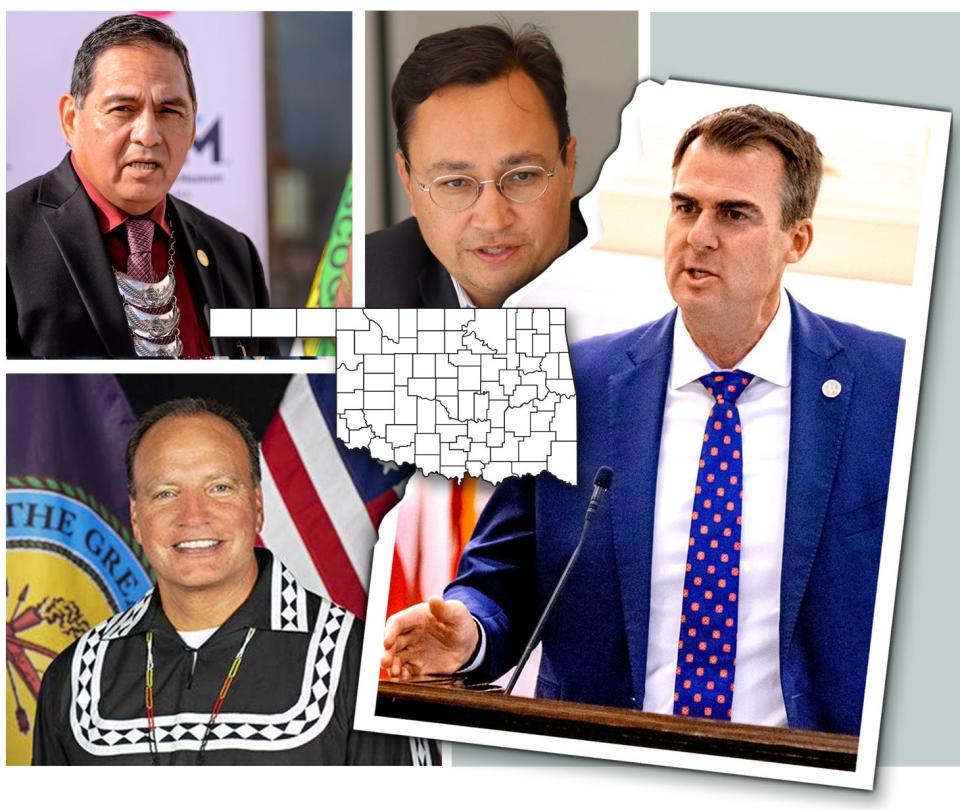
“His failure again to work with the 39 tribes across the state of Oklahoma is creating chaos and uncertainty in the state,” Choctaw Chief Gary Batton said. “People in the state of Oklahoma like unity. They want to know we’re aligned strategically.”
Past Oklahoma governors were willing to sit down with tribes to work through issues and discuss how to pool resources for positive change, Batton said.
“Instead, this has been a governor that is very divisive and that separates us in the state of Oklahoma,” he said.
Latest: Oklahoma Gov. Stitt won't renew hunting, fishing compacts with Cherokee, Choctaw tribes
In a statement, Stitt spokeswoman Carly Atchison said the governor has an open door to discussions with Oklahoma’s tribes, but she did not respond to specific questions seeking details about when the governor had met with tribal leaders and whether such meetings are a priority.
“This is not an issue of tribes versus Kevin Stitt, rather the governor and tribal leaders have a fundamental dispute over whether or not McGirt was correctly decided,” she said. “The sovereignty of the state of Oklahoma is at stake and there is no more critical issue.”
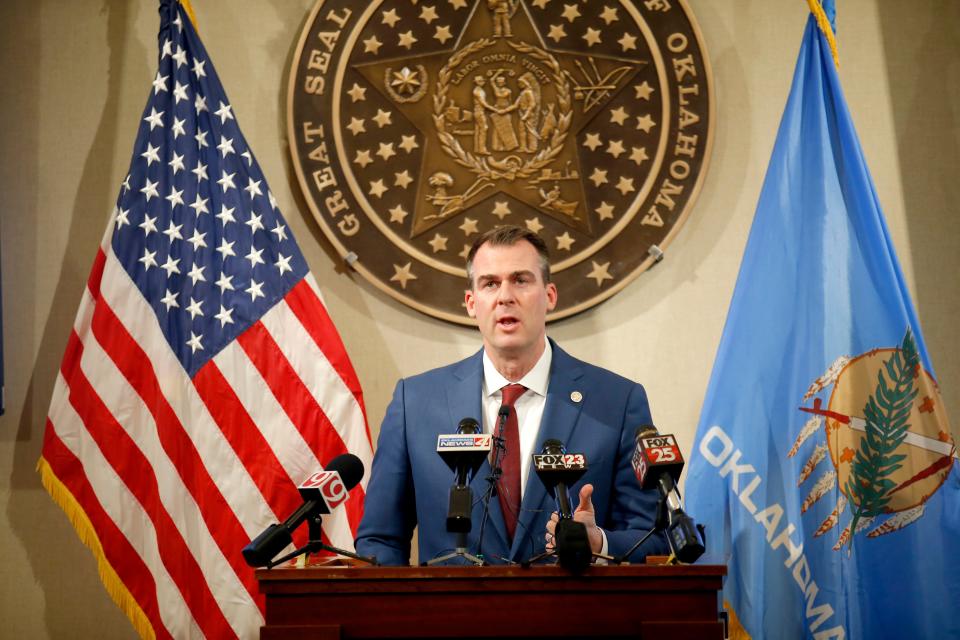
Divide between state, tribes deepens
Earlier the same day that Stitt and Muscogee Nation leaders sat down for dinner on Feb. 1, the governor called McGirt the “most pressing” issue facing the state, citing unanswered questions raised by the ruling.
In his State of the State speech, Stitt also painted a dark picture of a post-McGirt Oklahoma, saying hundreds of criminal cases were being dismissed because the state no longer had jurisdiction over cases involving Native American residents in Indian Country.
The speech marked a shift in tone for the governor who has since taken a more aggressive approach in discussing the ruling, which tribes hail as a win for their sovereignty.
The Muscogee Nation quickly disputed most of Stitt’s remarks. In a statement, the tribe said Stitt was inaccurately leading the public to believe hundreds of criminals are going free when they are instead being transferred to federal and tribal jurisdiction.
“The Governor’s comments on the aftermath of (McGirt) were inaccurate at best and fear-based and misleading at worst,” the tribe said.
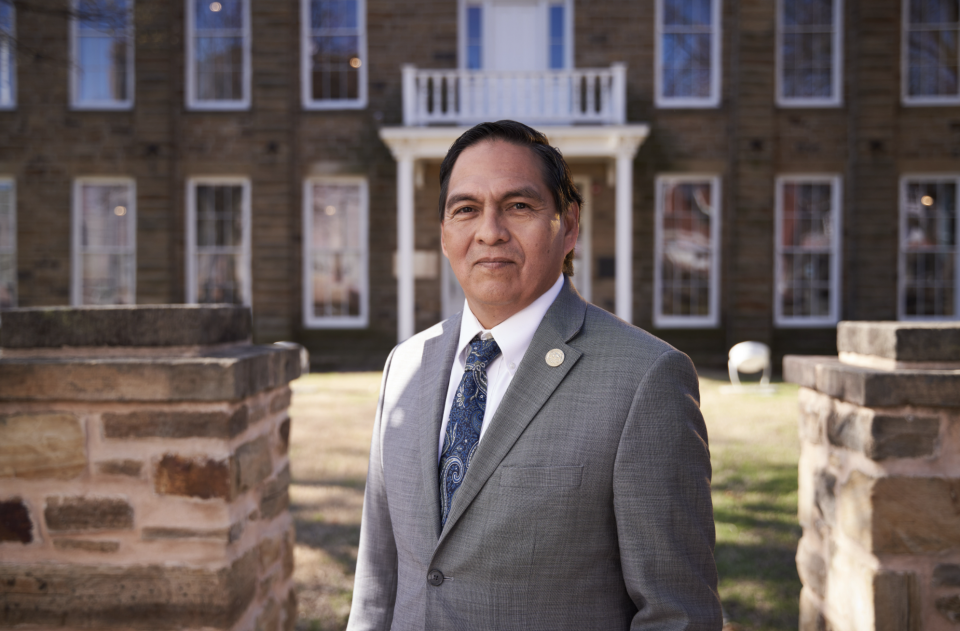
In the 5-4 decision, the Supreme Court court found the Muscogee reservation in eastern Oklahoma had never been disestablished. The decision was later applied to the Cherokee, Chickasaw, Choctaw, Seminole and Quapaw reservations. Justices could decide as soon as January whether to reconsider the case.
Some people whose convictions were overturned after the ruling have not been retried for their crimes because the statute of limitations has expired or because the case against them has weakened.
State-tribal relations can vary from governor to governor, said former Gov. Frank Keating, a Republican.
“Every administration has a different relationship with tribal leaders because strong personalities frequently bump into strong personalities,” he said.
Cherokee Principal Chief Chuck Hoskin Jr. said Stitt’s administration has done more to harm state-tribal relations than any other governor in Oklahoma’s 114-year history. The Cherokee Nation is the largest tribe in Oklahoma, and Stitt is among its roughly 400,000 citizens.
Not all of Stitt’s predecessors embraced tribal sovereignty, Hoskin said. But relations had been on a positive trajectory for 30 years.
“It is really breathtaking how quickly one governor has set back state-tribal relations that have taken decades to build,” Hoskin said.
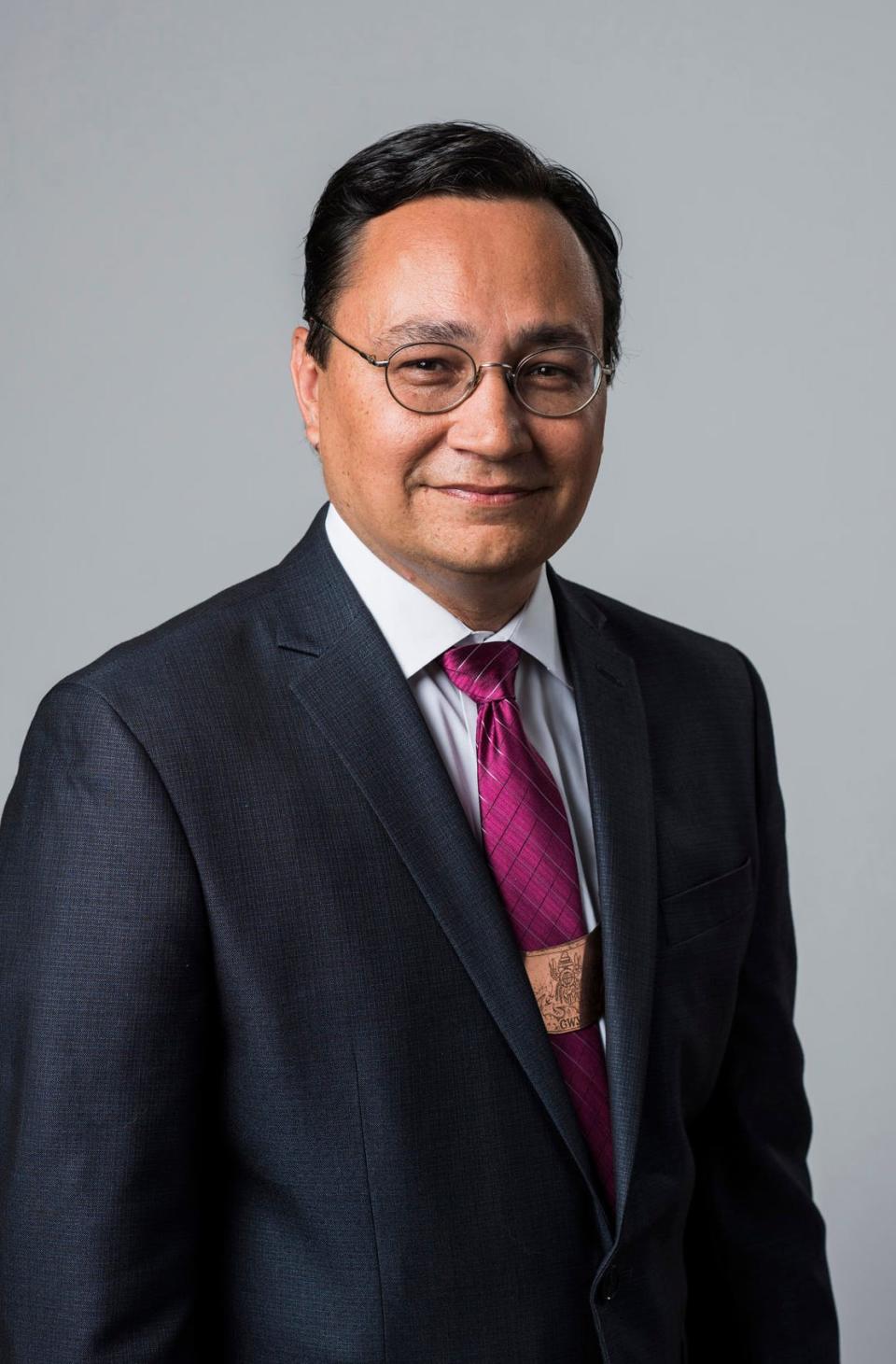
Keating said it is important for state and tribal leaders to discuss, negotiate and debate issues of mutual importance, he said.
Keating said he tried whenever possible during his administration to try to resolve issues with the tribes amicably. He also touts that he was the first Oklahoma governor to not sue any of the tribes.
“Because we are all Oklahomans, whether we have Native blood or not, it’s best for all of us to sit down and try to resolve things together because acrimony and fighting achieves nothing,” he said.
More: Supreme Court sets date to consider Oklahoma McGirt petitions
But when asked if he thought Stitt and the tribes could work out McGirt issues outside of the courtroom, Keating responded that such a major decision may only be able to be resolved before the U.S. Supreme Court.
Batton was more blunt about whether he believed Stitt and tribal leaders could rebuild the unity that existed under other Oklahoma governors. “No,” he said.
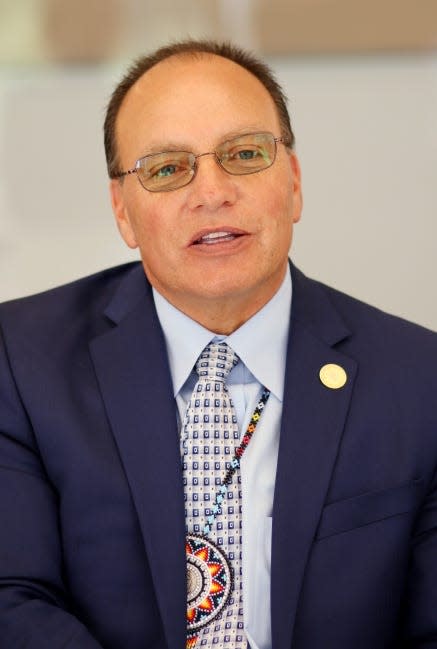
Tribes withdraw past praise for Stitt
In the months after the McGirt decision, Stitt hosted Batton at the Governor’s Mansion. Top members of Stitt’s administration, including Ryan Leonard, the governor’s special counsel on Native American Affairs, visited with leaders of the Choctaw, Cherokee and Muscogee nations.
It’s unclear what specifically prompted Stitt and tribal leaders to stop meeting in early 2021, but the state-tribal relationship has only appeared to have worsened in recent months. Stitt moderated a June panel discussion on the fallout of the Supreme Court decision. Tribal leaders were notably absent.
More: After McGirt forum, Oklahoma, tribes left without clear path over decision
In July, Stitt appointed a new attorney general who took office echoing the governor’s goal of wanting to overturn McGirt.
Attorney General John O’Connor, who is leading the legal fight to overturn McGirt, “has had productive meetings with two of the five tribal leaders,” since he took office, according to his office. A spokeswoman for O’Connor declined to provide details of specifically whom the attorney general met with and what was discussed.
But tensions between state and tribal leaders have continued to build. The Cherokee, Chickasaw, Choctaw, Muscogee and Seminole intertribal council voted in October to withdraw its commendation on Stitt’s 2018 election. The resolution said Stitt had “repeatedly disappointed” the tribes.
Frequent meetings followed Stitt’s election
Stitt once took a much different approach to working with tribes. In May 2017, weeks before he announced his run for governor, he met with Chickasaw Gov. Bill Anoatubby to discuss his plans.
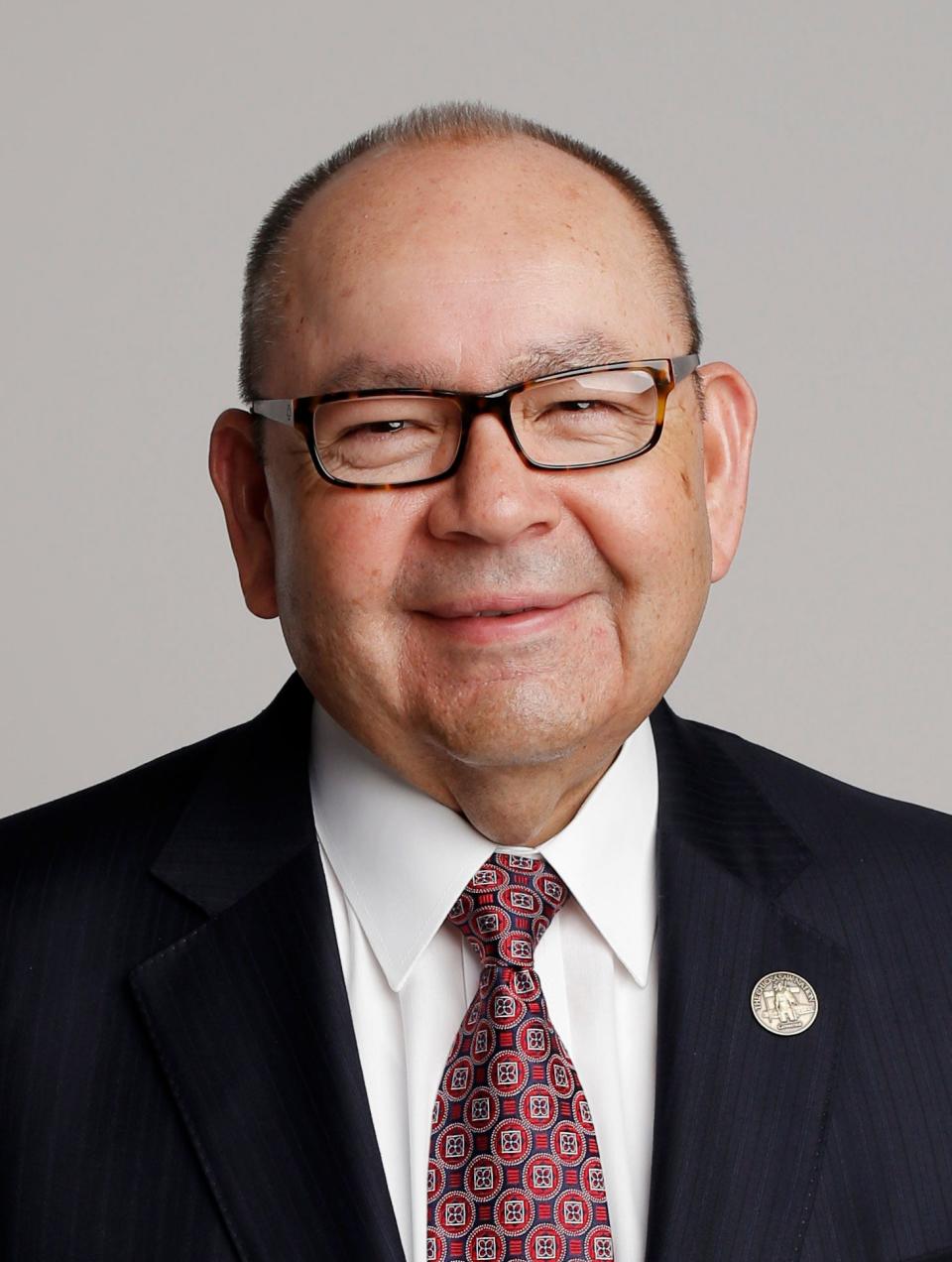
A prominent figure in state and tribal politics, Anoatubby has led the Chickasaw Nation since 1987. He helped lead Oklahoma’s efforts to build the First Americans Museum in Oklahoma City, and he has also served on the state Health Care Authority board.
He met twice with Stitt before the 2018 election to discuss Stitt’s planned administration. After Stitt was elected, the Chickasaw Nation hosted a business industry meeting about helping the governor’s economic development efforts.
The Chickasaw and Cherokee nations both contributed $75,000 to Stitt's inauguration, and the Choctaw Nation chipped in $50,000.
Stitt interacted regularly with tribal leaders at community events and business meetings during his first months in office. He traveled to southeast Oklahoma to discuss education with Batton in June 2018.
The following week, Stitt made a round of phone calls that would ultimately launch a joint effort to oppose him. Stitt began to push to renegotiate the state’s tribal gaming compacts.
Stitt called then-Cherokee Chief Bill John Baker and Hoskin, who was then the Cherokee secretary of state, to say he was sending a letter regarding the state-tribal gaming compact. He also called Anoatubby to say he had sent a letter about his interest in renegotiating the deals.
Stitt has said he called the leaders of the Five Tribes and sent letters to leaders of all 35 tribes with which the state has gaming compacts. However, many say they learned about the governor’s plans to renegotiate the compacts through an op-ed he published in the Tulsa World.
Over the next month, he met separately with leaders of the Chickasaw, Choctaw and Cherokee nations to discuss the gaming compact dispute. The tribes collectively contended the state’s model gaming compact automatically renewed, which Stitt disputed. Courts eventually sided with the tribes’ position.
In the midst of the gaming fight, Stitt’s Cabinet secretary on Native American Affairs resigned, citing what she called “an unnecessary conflict with the tribes.”
Lisa Billy, a former state lawmaker who is now a legislator of the Chickasaw Nation, warned Stitt’s actions posed a risk of lasting damage to state-tribal relations. In her December 2019 resignation letter, she criticized Stitt’s handling of the gaming compact dispute.
“You have dismissed advice and facts that show the peril of your chosen approach and have remained intent on breaking faith with the tribes,” she wrote.
This article originally appeared on Oklahoman: Stitt, tribes halt meetings as Supreme Court weighs McGirt petitions

